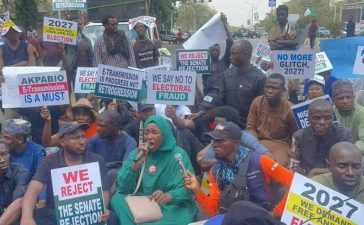President Bola Tinubu on Monday issued a strong caution to judicial officers across the country, insisting that justice must remain sacred, incorruptible, and fully insulated from undue influence. He declared that “justice must never be for sale,” as he opened the 2025 All Nigerian Judges’ Conference of the Superior Courts in Abuja.
Tinubu described judicial officers as the true custodians of justice and pledged continued federal investment in their welfare, training, and the National Judicial Institute. He stressed that continuous learning and ethical renewal must guide judicial conduct at all times.
But the President warned that no meaningful reform would succeed without unwavering integrity.
“Justice must never be for sale, and the Bench must never become a sanctuary for compromise. Corruption in any arm of government weakens the nation, but corruption in the Judiciary destroys it at its core,” he said.
Tinubu maintained that judicial discipline must be firm, transparent, and collectively enforced. Safeguarding the courts’ integrity, he said, is the responsibility of every judge, not just the National Judicial Council (NJC).
The President also expressed concern over the growing backlog of cases and the slow pace of justice delivery, describing both as unacceptable and detrimental to Nigeria’s democratic stability.
“The backlog of cases in our courts must be addressed with urgency. Our courts must no longer be places where cases languish for years. Justice exists for the people, and their faith in the judicial process is the foundation of our national stability,” he stated.
Tinubu acknowledged public frustration over delayed judgments, questionable conduct, and the difficulty of accessing justice. These concerns, he said, require honest reflection and decisive action.
“These perceptions, whether wholly justified or not, cannot be ignored. They call upon us to reflect, to reform, and to restore.”
Reaffirming his administration’s commitment to modernising the Judiciary, he emphasised the need for technology-driven reforms. Digitisation, integrated case management, and modern infrastructure, he said, must form the backbone of a transparent and efficient justice system.
“Support must be tangible, not ceremonial. We will prioritise modern infrastructure, digital processes, and efficient case management. A digital, transparent judiciary will deepen accountability and public trust.”
Tinubu urged judges to champion reforms that strengthen discipline, ease court congestion, and make justice more accessible and affordable to the public.
Declaring the conference open, he said Nigeria’s democratic evolution continues to be shaped by the courage, fairness, and integrity of judicial decisions.
“Each fair judgment strengthens the Republic; each courageous ruling preserves its soul,” Tinubu added.






